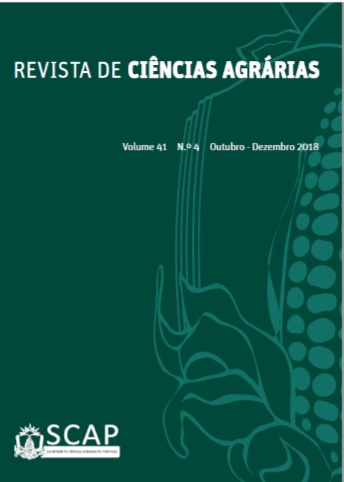Production of yellow and purple passion fruit seedlings irrigated with salt water and use of cow urine
DOI:
https://doi.org/10.19084/RCA18164Abstract
In the semi-arid region of Northeast of Brazil, the salinity of irrigation water is one of the factors that most interferes in the production of fruit tree seedlings, being necessary the search of alternatives to mitigate the effects of the salts in the plants. The objective of this work was to evaluate the growth and quality of seedlings of two cultivars of passion fruit (yellow and purple) under conditions of irrigation with saline waters, in substrate with and without the use of cow urine diluted in water. The experiment was conducted in a completely randomized experimental design, with treatments distributed in the 2 x 2 x 2 factorial arrangement, corresponding to two cultivars of passion fruit (yellow and purple), two levels of electrical conductivity of irrigation water (0.5 and 3.5 dS m-1) and in the presence or absence of cow's urine diluted in water (0.0% and 5.0%) and ten replicates. Seedling emergence rate index, height and shoot diameter of passion fruit seedlings, regardless of the yellow or purple species, were negatively affected by irrigation with high salinity water (3.5 dS m-1). Cow urine attenuated the negative effects of salts on purple passion fruit plants. The use of cow urine, applied via soil, increased the leaf area of yellow and purple passion fruit seedlings, regardless of water salinity. Yellow passion fruit seedlings presented better quality standards when produced with low salinity water, regardless of the use of cow urine. The quality indexes of purple passion fruit seedlings were adequate when using low salinity water and without cow urine and in treatments with more saline water and cow urine.


